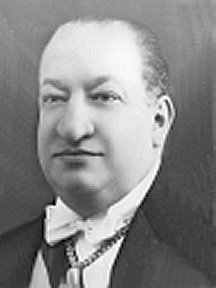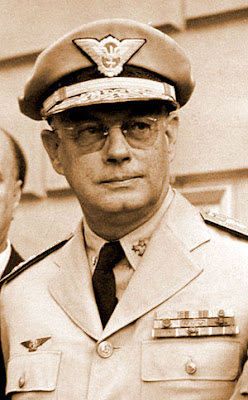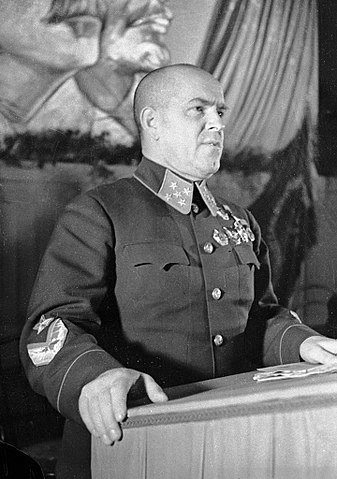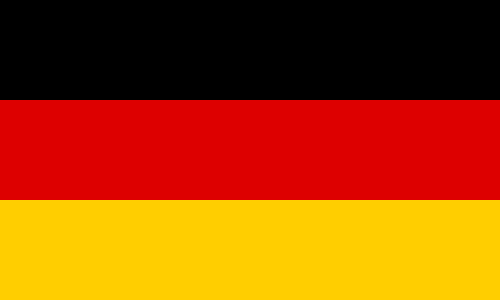Lighthearter
President of the United States
1936. Nations have risen and fallen, and at the moment yours is on the rise. Do you have what it takes to master politics, economics, engineering, warcraft, espionage, ministers, ideologies and technology to forge a great empire, or will you be cast aside on the ash heap of history?
Time will tell. The nations of today are thrown into the Crucible of history - and God alone knows what will emerge at the end.
Welcome!
First, the rules. No being a jerk. I reserve the right to penalize anyone who is flaming, trolling, spamming, or who generally irritates me. All of the above are as defined by me.
This IOT is set in the late 30s and into the 40s.
To join: Choose two Traditions, three provinces from the map, one Technology, one Social Policy and arrange your 4 Command Units between Generals, Admirals and Air Marshals.
Now let me get to the explaining.
Traditions & The Map:
Traditions essentially are what your nation historically has skill in. This obviously influences what skills your people have in the modern day. There are eight Traditions.
Army Tradition: Army Minister starts at Tier Two, 5% Land Combat bonus.
Naval Tradition: Navy Minister starts at Tier Two, 5% Sea Combat bonus.
Air Force Tradition: Air Force Minister starts at Tier Two, 5% Air Combat bonus.
Officer Tradition: +2 starting Command Units, +1 starting Spy.
Merchant Tradition: Interior Minister starts at Tier Two, 5% Total Income bonus.
Legal Tradition: +1 starting Social Policy, +1 starting Minister Slot.
Innovative Tradition: +10% Points in Unit Creator, +1 Unique Unit.
Scientific Tradition: +1 starting Technology, 1 extra Secret Project available.
Choose two Traditions.

Choose three provinces. Establish a name, a capital province, a color, and any other details about your nation that you want. RP does award COPIOUS bonuses in this game, in all areas.
Technology & Social Policies:
Technologies represent the march of time and progress. You can research things from new units to nuclear bombs. Each new technology requires a Research Lab.

Choose one Tech from the list. If you chose the Scientific Tradition, choose two.
Social Policies represent the laws of your society. You can mix and match to customize just how liberal, conservative, free, authoritarian, socialist or capitalist your nation ultimately is. There are two "Tracks" roughly divided into authoritarian and democratic. The "pairs" are mutually exclusive, and you can only have one at a time. It costs 200 to adopt a Policy, +200 for all other policies you have in the same track and +400 for all policies you have in the other track. Repealing a Policy is free, but you can't adopt the opposite of the pair until the next turn. If you repeal a policy that awards a bonus, including a building or unit, the bonus is removed.
Depth Bonus 1: 6 of Democracy - +1 Tech. 6 of Authoritarian - +1 Command Unit.
Depth Bonus 2: All of Democracy - +1 Unique Unit, +5% Total Income. All of Authoritarian - +1 Unique Unit, +10% to all combat.
Width Bonus 1: 3 of Each - +1 Unique Unit, +1 Spy
Width Bonus 2: 5 of Each - +1 Command Unit, +1 Spy

Choose one Policy. If you chose the Legal Tradition, choose two.
Units & Buildings:
Units are the instrument of your nation's power across the world. You start the game with 3 Infantry, 1 Armor, 1 Anti-tank, 1 AA Gun, 1 Fighter, 2 Interceptors, 1 Escort, 2 Bombers, 1 Battleship, 2 Submarines, 3 Destroyers, 1 Cruiser and 1 Artillery.

Buildings are the infrastructure that keeps your nation running. You can only have one building per province per turn it has been in your nation.

You start the game with your Capitol in a province of your choice. You cannot acquire more than one.
Warcraft & Unique Units:
As units fight, they gain veterancy. As they level up, they become stronger.
You are requested to provide a name for all of your units. E.G. "USS Enterprise" "1st "Thunderhead" Division" "7th Tactical Air Wing" and such. If you do not supply one then one will be automatically provided. Units can be renamed at any time.

There are four kinds of battle.
Minor Victory/Defeat means that the winning side won 2/3 RNG rolls, and did NOT inflict more than 75% damage to the defeated side.
Major Victory/Defeat means that the winning side won 3/3 RNG rolls, and did NOT inflict more than 75% damage to the defeated side.
Decisive Victory/Defeat means that the winning side won either 2/3 or 3/3 RNG rolls, and inflicted higher than 75% casualties on the loser, forcing them to withdraw from the contested province.
Total Victory/Defeat means that the winning side won either 2/3 or 3/3 RNG rolls and inflicted 100% casualties on the loser, annihilating their entire force and seizing the province.
War is fought primarily via Counters. Every unit is countered by something, and all units except artillery and railroad guns counter something else. If you have equal countering points to the enemy's strength of units that are countered(or greater), all units of the countering class fight at double strength in the battle.
That made no sense, did it?
Example time. A Battleship counters three destroyers. If you have 1BB for every 3 enemy DDs, then all your battleships fight at double strength. The same applies if you have 2 subs for every enemy battleship, or one destroyer for every enemy sub. Learn the counter chains and pay attention to the enemy's deployment in order to gain tactical advantages.
Air and naval units are limited by their range. They must operate within 3 provinces or sea zones of the nearest airbase or harbor respectively. The Capitol counts as both if it is coastal. Sea units can move over 3 seazones per turn. Air Units can either conduct a mission or rebase to another airbase/carrier/capitol every turn. Naval units can move into any land province that contains a Harbor or Capitol, but if the province falls they all take 50% damage and are forced back to sea. They are still vulnerable to air attack.
Command Units(Admirals, Generals and Air Marshals) have no combat strength on their own, but they provide a 20% combat bonus to all units of their province engaged in the battle. They provide a 10% bonus to units of their province that belong to your allies, but this does NOT stack if they have their own command unit.
Only CAGs and Interceptors may base on Aircraft Carriers. Otherwise a carrier functions like a mobile airbase.
Artillery functions as a ranged attack. They should not be sent along with forces moving into enemy provinces, and instead hang back in the border lobbing constant attacks into enemy land. There is no chance of damage being inflicted this way.
You can prioritize what enemy units to attack when your forces inflict casualties. It's not an ironclad thing, but if your men know to focus fire on enemy armor, they won't waste time shooting as many infantrymen. Or, say, if you launch an air raid against enemy artillery . . . .
Land Units may move across two provinces per turn if neither are hostile. They can move once and then attack, or simply attack, but not attack and move or attack and attack again. Any units that have taken damage in combat will heal up to 50% of their health for every turn that they take no actions and participate in no battles. Thus, any units you want to heal, you should move behind the lines.
Unique Units are your nation's individualized modifications off the base platform of other units. Each unit's attack, defense and HP is added up to get their "point" total(listed in the unit spreadsheet above). 30% of that total is then added on for your use in making UUs(Amount listed below). In addition, you can pull up to 20% from each stat and reposition those points on your favored stats. In ADDITION, you can pay to make your UU counter new units or counter more of the unit it normally counters.
You may create two Unique Units. Constructing a Unique Unit costs 25% more than the base unit you're modifying. You can unlock more Unique Units or add more points to customization by researching Secret Project Technologies. Some Policy rewards also add new Unique Unit slots.

If you chose the Innovative Tradition, you have +40% points instead of 30%. You also may create three Unique Units instead of two.
Ministers & Provinces:
Ministers are the government officials and managers of your nation. They get choices between several options at each level, all of which provide substantial bonuses. Technologies and Social Policies will level up your Ministers. There are four potential Ministers. You can fire your minister at any point, but the replacement will earn one tier per turn starting the turn AFTER the firing takes place, until they reach the median level for your ministers.

You have one open minister slot, and your minister starts at Tier One. If you chose the Legal Tradition, you have two minister slots. If you chose the Army, Navy, Air Force or Merchant Traditions, any Army, Navy, Air Force or Interior Minister respectively will start at Tier Two.
Espionage & Economy:
Espionage is your nation's covert attempts to ruin everyone else's day. You start the game with 2 Spies. Spies can be left on Home Defense, which attempts to stop other nations' spy activities, or sent to perform spy actions against your enemies.
Sabotage: Attempt to destroy a building.
Steal: Attempt to reduce enemy income.
Steal Plans: Steal the plans for an enemy UU.
Arm Rebels: May only be performed in an Occupied or Territorial Province. If successful, this action may spawn NPC rebels, which the owner of the province will have to battle down.
Disrupt Production: Temporarily increase the cost of enemy units and buildings.
Steal Superweapon: Attempt to break into the enemy stockpile and steal a nuclear or biological weapon. If you wish your agent can simply detonate it where it is, unleashing the weapon on a random enemy Homeland province. Or you can deactivate it without detonating it, or attempt to return it to your land or that of another nation.
The Economy is simple. Every Occupied Province provides 25, Territorial Provinces provide 50, and Homeland Provinces provide 100 per turn. Factories placed in provinces will increase the output of the province.
5% of the global income(bonuses not counted) is awarded to each player as trade. Any nation that is embargoing you, at war with you, or at war period will not supply you any trade income. Your territorial output and trade are added together, any total income modifiers are added, and this is listed as your income.
An Occupied Province is a province that has only recently been secured by force of arms. All land you claim starts as this, and remains this for one turn. In war, all land you seize becomes this, and remains this until peace is declared, at which point it becomes a Territorial Province. Territorial Provinces become Homeland Provinces after 3 turns. You gain a 10% combat bonus when fighting in a Homeland Province. All three of your starting provinces are Homeland provinces.
Next 2 posts reserved for map/update list and then UU list. Once I've claimed Post #3 anyone can post without being clobbered by an NPC conspiracy.
Time will tell. The nations of today are thrown into the Crucible of history - and God alone knows what will emerge at the end.
Welcome!
First, the rules. No being a jerk. I reserve the right to penalize anyone who is flaming, trolling, spamming, or who generally irritates me. All of the above are as defined by me.
This IOT is set in the late 30s and into the 40s.
To join: Choose two Traditions, three provinces from the map, one Technology, one Social Policy and arrange your 4 Command Units between Generals, Admirals and Air Marshals.
Now let me get to the explaining.
Traditions & The Map:
Traditions essentially are what your nation historically has skill in. This obviously influences what skills your people have in the modern day. There are eight Traditions.
Army Tradition: Army Minister starts at Tier Two, 5% Land Combat bonus.
Naval Tradition: Navy Minister starts at Tier Two, 5% Sea Combat bonus.
Air Force Tradition: Air Force Minister starts at Tier Two, 5% Air Combat bonus.
Officer Tradition: +2 starting Command Units, +1 starting Spy.
Merchant Tradition: Interior Minister starts at Tier Two, 5% Total Income bonus.
Legal Tradition: +1 starting Social Policy, +1 starting Minister Slot.
Innovative Tradition: +10% Points in Unit Creator, +1 Unique Unit.
Scientific Tradition: +1 starting Technology, 1 extra Secret Project available.
Choose two Traditions.
Spoiler :

Choose three provinces. Establish a name, a capital province, a color, and any other details about your nation that you want. RP does award COPIOUS bonuses in this game, in all areas.
Technology & Social Policies:
Technologies represent the march of time and progress. You can research things from new units to nuclear bombs. Each new technology requires a Research Lab.
Spoiler :

Choose one Tech from the list. If you chose the Scientific Tradition, choose two.
Social Policies represent the laws of your society. You can mix and match to customize just how liberal, conservative, free, authoritarian, socialist or capitalist your nation ultimately is. There are two "Tracks" roughly divided into authoritarian and democratic. The "pairs" are mutually exclusive, and you can only have one at a time. It costs 200 to adopt a Policy, +200 for all other policies you have in the same track and +400 for all policies you have in the other track. Repealing a Policy is free, but you can't adopt the opposite of the pair until the next turn. If you repeal a policy that awards a bonus, including a building or unit, the bonus is removed.
Depth Bonus 1: 6 of Democracy - +1 Tech. 6 of Authoritarian - +1 Command Unit.
Depth Bonus 2: All of Democracy - +1 Unique Unit, +5% Total Income. All of Authoritarian - +1 Unique Unit, +10% to all combat.
Width Bonus 1: 3 of Each - +1 Unique Unit, +1 Spy
Width Bonus 2: 5 of Each - +1 Command Unit, +1 Spy
Spoiler :

Choose one Policy. If you chose the Legal Tradition, choose two.
Units & Buildings:
Units are the instrument of your nation's power across the world. You start the game with 3 Infantry, 1 Armor, 1 Anti-tank, 1 AA Gun, 1 Fighter, 2 Interceptors, 1 Escort, 2 Bombers, 1 Battleship, 2 Submarines, 3 Destroyers, 1 Cruiser and 1 Artillery.
Spoiler :

Buildings are the infrastructure that keeps your nation running. You can only have one building per province per turn it has been in your nation.
Spoiler :

You start the game with your Capitol in a province of your choice. You cannot acquire more than one.
Warcraft & Unique Units:
As units fight, they gain veterancy. As they level up, they become stronger.
You are requested to provide a name for all of your units. E.G. "USS Enterprise" "1st "Thunderhead" Division" "7th Tactical Air Wing" and such. If you do not supply one then one will be automatically provided. Units can be renamed at any time.
Spoiler :

There are four kinds of battle.
Minor Victory/Defeat means that the winning side won 2/3 RNG rolls, and did NOT inflict more than 75% damage to the defeated side.
Major Victory/Defeat means that the winning side won 3/3 RNG rolls, and did NOT inflict more than 75% damage to the defeated side.
Decisive Victory/Defeat means that the winning side won either 2/3 or 3/3 RNG rolls, and inflicted higher than 75% casualties on the loser, forcing them to withdraw from the contested province.
Total Victory/Defeat means that the winning side won either 2/3 or 3/3 RNG rolls and inflicted 100% casualties on the loser, annihilating their entire force and seizing the province.
War is fought primarily via Counters. Every unit is countered by something, and all units except artillery and railroad guns counter something else. If you have equal countering points to the enemy's strength of units that are countered(or greater), all units of the countering class fight at double strength in the battle.
That made no sense, did it?
Example time. A Battleship counters three destroyers. If you have 1BB for every 3 enemy DDs, then all your battleships fight at double strength. The same applies if you have 2 subs for every enemy battleship, or one destroyer for every enemy sub. Learn the counter chains and pay attention to the enemy's deployment in order to gain tactical advantages.
Air and naval units are limited by their range. They must operate within 3 provinces or sea zones of the nearest airbase or harbor respectively. The Capitol counts as both if it is coastal. Sea units can move over 3 seazones per turn. Air Units can either conduct a mission or rebase to another airbase/carrier/capitol every turn. Naval units can move into any land province that contains a Harbor or Capitol, but if the province falls they all take 50% damage and are forced back to sea. They are still vulnerable to air attack.
Command Units(Admirals, Generals and Air Marshals) have no combat strength on their own, but they provide a 20% combat bonus to all units of their province engaged in the battle. They provide a 10% bonus to units of their province that belong to your allies, but this does NOT stack if they have their own command unit.
Only CAGs and Interceptors may base on Aircraft Carriers. Otherwise a carrier functions like a mobile airbase.
Artillery functions as a ranged attack. They should not be sent along with forces moving into enemy provinces, and instead hang back in the border lobbing constant attacks into enemy land. There is no chance of damage being inflicted this way.
You can prioritize what enemy units to attack when your forces inflict casualties. It's not an ironclad thing, but if your men know to focus fire on enemy armor, they won't waste time shooting as many infantrymen. Or, say, if you launch an air raid against enemy artillery . . . .
Land Units may move across two provinces per turn if neither are hostile. They can move once and then attack, or simply attack, but not attack and move or attack and attack again. Any units that have taken damage in combat will heal up to 50% of their health for every turn that they take no actions and participate in no battles. Thus, any units you want to heal, you should move behind the lines.
Unique Units are your nation's individualized modifications off the base platform of other units. Each unit's attack, defense and HP is added up to get their "point" total(listed in the unit spreadsheet above). 30% of that total is then added on for your use in making UUs(Amount listed below). In addition, you can pull up to 20% from each stat and reposition those points on your favored stats. In ADDITION, you can pay to make your UU counter new units or counter more of the unit it normally counters.
You may create two Unique Units. Constructing a Unique Unit costs 25% more than the base unit you're modifying. You can unlock more Unique Units or add more points to customization by researching Secret Project Technologies. Some Policy rewards also add new Unique Unit slots.
Spoiler :

If you chose the Innovative Tradition, you have +40% points instead of 30%. You also may create three Unique Units instead of two.
Ministers & Provinces:
Ministers are the government officials and managers of your nation. They get choices between several options at each level, all of which provide substantial bonuses. Technologies and Social Policies will level up your Ministers. There are four potential Ministers. You can fire your minister at any point, but the replacement will earn one tier per turn starting the turn AFTER the firing takes place, until they reach the median level for your ministers.
Spoiler :

You have one open minister slot, and your minister starts at Tier One. If you chose the Legal Tradition, you have two minister slots. If you chose the Army, Navy, Air Force or Merchant Traditions, any Army, Navy, Air Force or Interior Minister respectively will start at Tier Two.
Espionage & Economy:
Espionage is your nation's covert attempts to ruin everyone else's day. You start the game with 2 Spies. Spies can be left on Home Defense, which attempts to stop other nations' spy activities, or sent to perform spy actions against your enemies.
Sabotage: Attempt to destroy a building.
Steal: Attempt to reduce enemy income.
Steal Plans: Steal the plans for an enemy UU.
Arm Rebels: May only be performed in an Occupied or Territorial Province. If successful, this action may spawn NPC rebels, which the owner of the province will have to battle down.
Disrupt Production: Temporarily increase the cost of enemy units and buildings.
Steal Superweapon: Attempt to break into the enemy stockpile and steal a nuclear or biological weapon. If you wish your agent can simply detonate it where it is, unleashing the weapon on a random enemy Homeland province. Or you can deactivate it without detonating it, or attempt to return it to your land or that of another nation.
The Economy is simple. Every Occupied Province provides 25, Territorial Provinces provide 50, and Homeland Provinces provide 100 per turn. Factories placed in provinces will increase the output of the province.
5% of the global income(bonuses not counted) is awarded to each player as trade. Any nation that is embargoing you, at war with you, or at war period will not supply you any trade income. Your territorial output and trade are added together, any total income modifiers are added, and this is listed as your income.
An Occupied Province is a province that has only recently been secured by force of arms. All land you claim starts as this, and remains this for one turn. In war, all land you seize becomes this, and remains this until peace is declared, at which point it becomes a Territorial Province. Territorial Provinces become Homeland Provinces after 3 turns. You gain a 10% combat bonus when fighting in a Homeland Province. All three of your starting provinces are Homeland provinces.
Next 2 posts reserved for map/update list and then UU list. Once I've claimed Post #3 anyone can post without being clobbered by an NPC conspiracy.
























